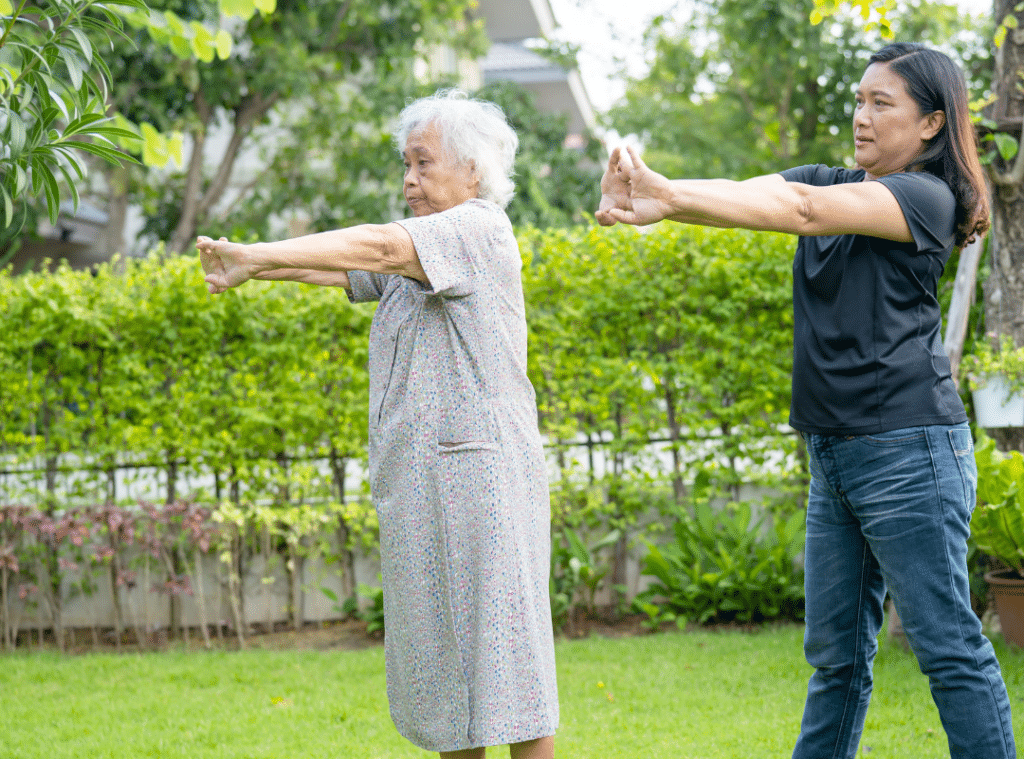Living independently in your senior years doesn’t mean giving up engagement or enrichment—it means choosing how you want to live each day. At Westmont Village Homes, residents enjoy a wide variety of independent living activities designed to support physical health, mental wellness, social connection, and personal growth.
From wellness classes and group hobbies to the latest in smart home technology, independent living can be empowering and invigorating. This article examines the numerous enriching independent living activities available to seniors and how these offerings contribute to a vibrant lifestyle for today’s older adults.
Visit Westmont Village Homes to explore how these activities are incorporated into daily life and enhance each resident’s journey.
Mental and Emotional Wellness Through Mindfulness
Prioritizing mental and emotional wellness is key to successful independent living activities for the elderly. Mindfulness techniques, such as meditation, journaling, and deep breathing, offer seniors valuable tools for self-reflection, peace of mind, and emotional regulation. Writing about your thoughts each day not only enhances self-awareness but also helps you manage stress more effectively.
Incorporating gratitude journaling or storytelling groups can also help seniors feel a greater sense of purpose. Participating in community wellness events allows for shared experiences and creates emotional support among residents. These independent living activities for seniors promote confidence, connection, and clarity—helping you stay mentally strong in your golden years.
Daily Movement and Gentle Fitness Routines
Physical wellness is a cornerstone of independent living activities. Even modest daily movement—like stretching, walking, or light strength training—can lead to increased mobility, flexibility, and energy. Seniors at Westmont Village Homes benefit from options like chair yoga, tai chi, and guided stretching routines.
Chair-supported squats and leg strengthening exercises are particularly beneficial in developing balance and lower-body strength, which are essential for preventing falls and promoting independence. These routines are not only easy to adapt to any fitness level but also encourage social bonding when done in group settings.
Whether you’re walking with a friend or joining a fitness class, independent living activities for the elderly help maintain physical function and independence.
Social Growth Through Group Activities
Community life thrives on social interaction. That’s why group activities are a fundamental part of independent living activities for seniors. Options such as book clubs, art workshops, cooking demonstrations, and gardening groups offer more than just fun—they create friendships and emotional support networks.
Participating in engaging social programs helps combat loneliness and provides opportunities for continued learning. For example, cooking together can rekindle old traditions while learning new recipes. Art classes can unleash your inner creativity and offer a meditative escape.
These types of independent living activities not only enrich your days but also foster a sense of belonging and joy that’s vital to mental health.

Stimulating the Mind with Cognitive Hobbies
Your brain, like your body, needs regular exercise. Cognitive hobbies are a key category of independent living activities for the elderly, helping seniors maintain mental sharpness and creativity. Activities like crosswords, memory games, and board games are excellent ways to support brain health.
At Westmont Village Homes, many residents find fulfillment in creative writing groups, history discussion clubs, and other mentally enriching programs. These hobbies encourage critical thinking, storytelling, and emotional expression.
Incorporating brain-boosting games into your weekly routine helps stimulate the mind while also creating fun, shared experiences with others in your community.
Tech Tools That Keep You Connected
Technology is a powerful tool that can enhance independent living activities for seniors by making it easier to stay connected and engaged. Many older adults are now using tablets, smartphones, and voice-activated assistants to communicate, learn, and manage their daily lives.
Below are some tech tools that enhance the independent living experience:
| Tool | Function |
| Video Calling (Zoom, Skype) | Stay in touch with family face-to-face |
| Smart Home Devices (Alexa) | Control lights, reminders, and safety alerts |
| Online Classes (Coursera, Udemy) | Learn new skills or hobbies |
| Wearable Health Monitors | Track heart rate, steps, and medication reminders |
Integrating technology into independent living not only simplifies daily tasks but also keeps seniors mentally stimulated and socially involved. From virtual museum tours to online fitness programs, a digital world awaits exploration.
Creative and Expressive Outlets
One of the most rewarding aspects of independent living activities is the chance to reconnect with hobbies that spark joy. Whether it’s painting, knitting, playing an instrument, or trying your hand at photography, these outlets help you express yourself and add color to your day.
These kinds of independent living activities for the elderly also support cognitive health, dexterity, and emotional expression. Sharing your creations in community exhibitions or talent nights adds another layer of interaction and celebration.
Local resources like AARP’s Creative Arts Programs offer guidance and ideas for keeping the creative spark alive in your later years.
Volunteering and Lifelong Purpose
For many seniors, giving back is a powerful way to stay engaged. Volunteering can take many forms—mentoring a student, organizing a food drive, or helping maintain a community garden. These independent living activities for seniors bring fulfillment and purpose while also benefiting others.
Communities like Westmont Village Homes often partner with local charities and schools, allowing residents to remain active contributors to their community. These meaningful activities align well with personal values and help create a sense of continued legacy.
Unlock a Life Full of Meaning and Joy
Your retirement years are the ideal time to engage in enriching, independent living activities that nurture your body, mind, and spirit. Whether it’s staying active through fitness, connecting with others through group events, or exploring new passions like writing or painting, these activities help you live fully and purposefully.
Westmont Village Homes offers a supportive and vibrant environment where residents enjoy a rich array of independent living activities for seniors. Every day presents a new opportunity to grow, connect, and thrive—making life not just longer, but fuller and more joyful.
Ready to start your next chapter? Call us at 951-697-2060 or Schedule a Tour to explore the enriching lifestyle waiting for you at Westmont Village Homes.
Dive into the vibrant life our Westmont communities have to offer.Find Where You Belong
Frequently Asked Questions
What are examples of independent living skills?
Independent living skills are the abilities that enable a person to manage their daily life independently. These include cooking, cleaning, managing money, using transportation, and personal hygiene. For seniors, it may also involve managing medications, using assistive technology, or navigating healthcare services. These skills support autonomy and improve quality of life.
What is an example of independent living?
An example of independent living is a senior residing in a retirement community, where they maintain their own apartment, cook their own meals, and come and go as they please. While they may have access to optional services like housekeeping or transportation, they do not rely on full-time care. Independent living settings promote freedom with the reassurance of community support when needed.
What is an independent living thing?
An independent living thing refers to any organism that can perform life-sustaining activities on its own. In a biological sense, this includes humans, animals, and plants that grow, reproduce, and respond to their environment without external control. In the context of seniors, it means a person who is able to live without daily assistance from caregivers.
What counts as living independently?
Living independently means being able to meet one’s own basic needs without relying on others for constant help. This includes managing finances, maintaining a home, preparing meals, and attending appointments. For seniors, it often involves living in a private residence or independent living community with optional support services. Independence can look different for everyone depending on their health and preferences.








